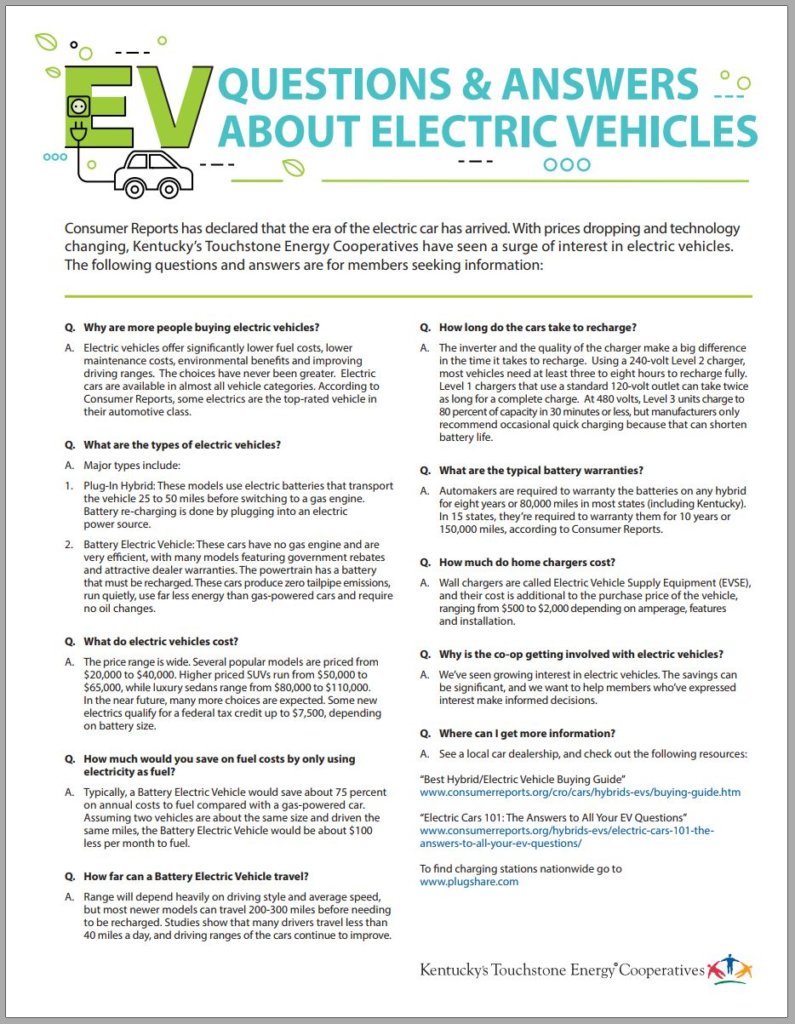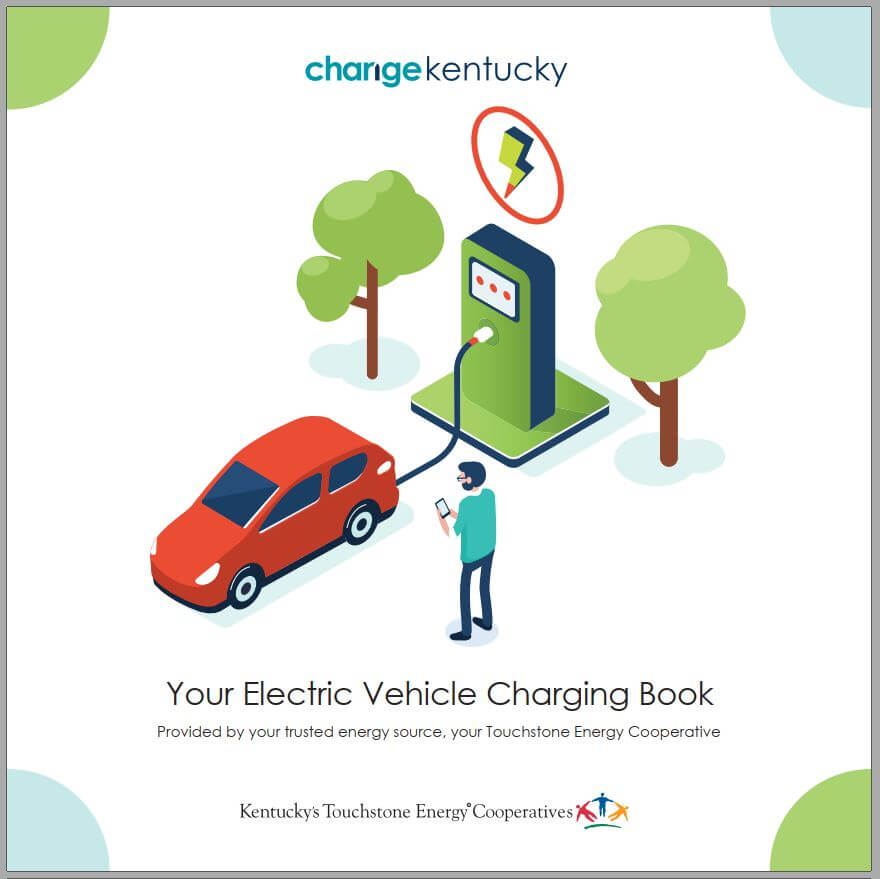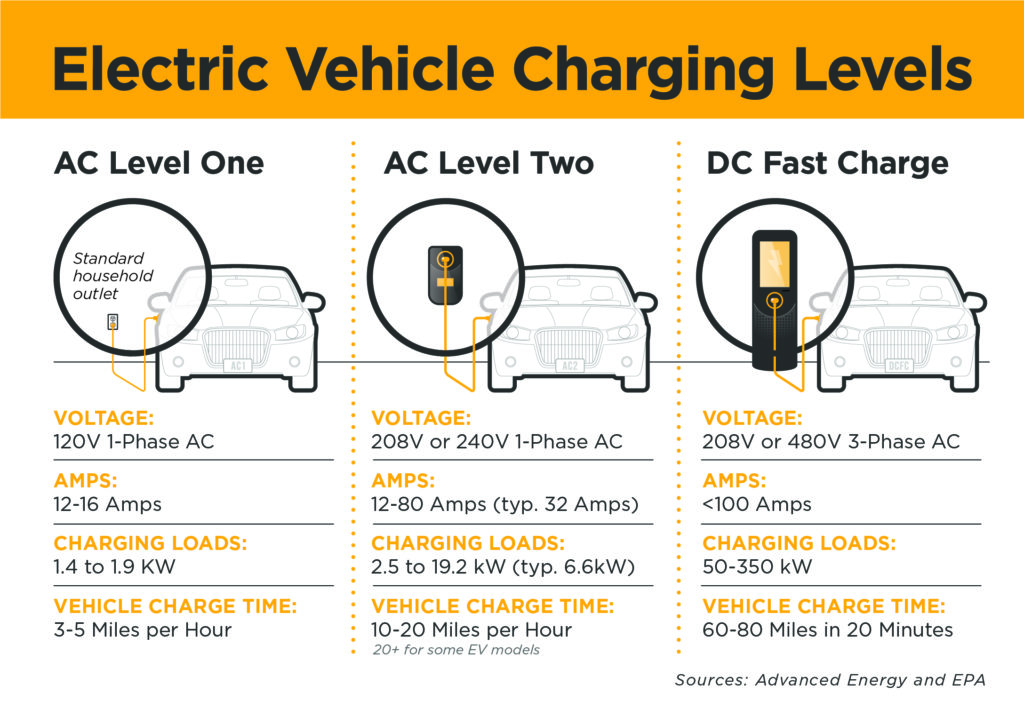Electric Vehicle Blog
COOPERATIVE PRINCIPLE: EDUCATION
We offer our real-life experience to help members gather information about a technology that may be of interest to you. Let us know if you have any topics you want us to cover related to EVs!
NEW! Residential Off-Peak Electric Vehicle Charging Pilot Program
Please visit our Rebates page for more information on our new residential off-peak EV Charging Pilot program that offers a $0.02 per kWh bill credit for charging your at EV at home during certain times.
Overview of Electric Vehicles (EVs)
At Nolin RECC, we want to be your source of power and information. Since electric vehicles are rapidly becoming more widely available, we put together some basic information to help answer questions you might have.
Many auto manufacturers are increasingly offering at least one electric vehicle model. Electric vehicles provide environmental advantages and, even though they may carry a higher price tag initially, tax credits and lower operating costs often balance out the initial investment.
Electric vehicle also offer more power and responsiveness than many of their gas-powered counterparts.
Already an EV owner? Please email comments@nolinrecc.com to help us learn about your energy use and what kinds of services we might provide in the future.
What do the terms mean?
We are most familiar with conventional combustion-engine vehicles, the standard for many years. The market is changing, and it’s hard to keep up with the newest technologies, models, nomenclature and more. For simplicity, this continuum separates the options into four basic types of vehicles. In our listing, the range is from most to least amount of fossil-fuel used in operation.
1. Conventional vehicles have an internal combustion engine; the most common fuels are gasoline and diesel.
2. Hybrid vehicles have both a gasoline engine and an electric motor and battery; both gas and electricity power the wheels. The electric motor and battery are designed to improve fuel economy, so less gasoline is used to operate the vehicle. The battery is charged solely by operating the vehicle; no plug-in is required or possible.
3. Plug-in Hybrid Electric Vehicles (PHEVs) have larger batteries than hybrids anduse both gas and electricity to power the wheels of the car. These vehicles vary in their electric range, but shift to gasoline-only operation when battery power is depleted. These vehicles must be plugged in to recharge the battery.
4. Battery Electric Vehicles (BEVs) are powered solely by electricity and are recharged by plugging in the vehicle.
What is the cost to own and operate an electric vehicle vs. a gas-powered conventional vehicle?
While battery electric vehicles and plug-in hybrid electric vehicles may have a higher purchase price, that can be at least partially offset by lower operating costs and incentives for battery-containing vehicles.
Try out the EV calculator by clicking the graphic below:




